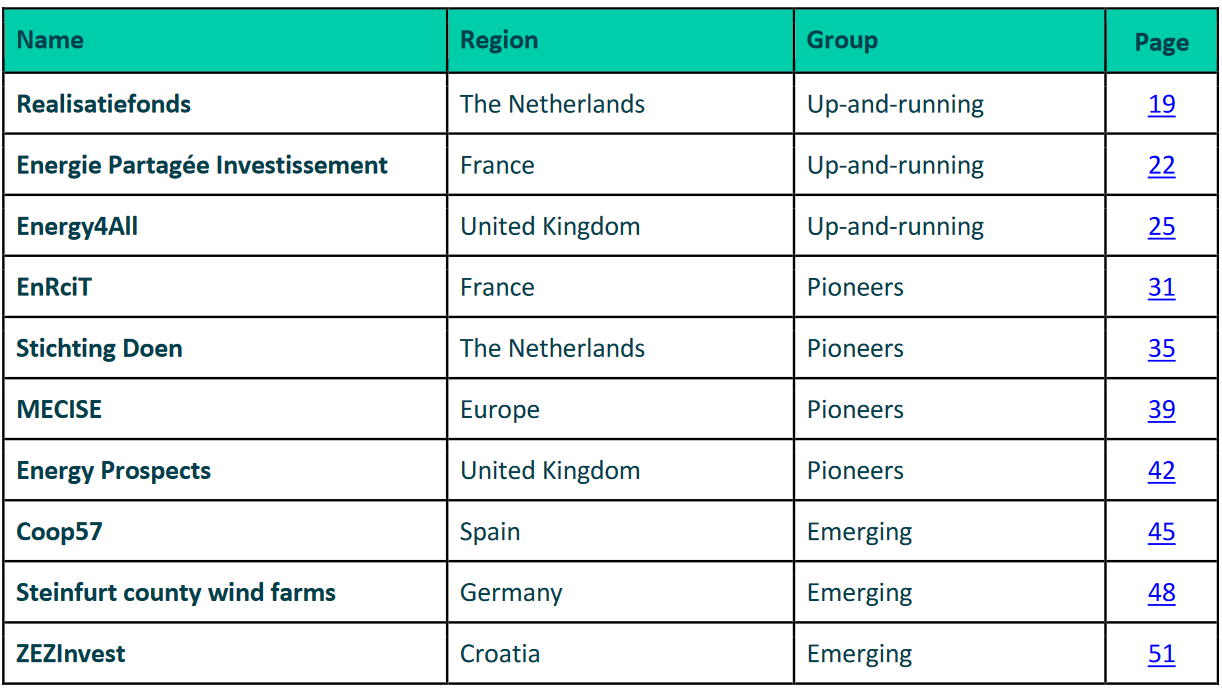Report
Best Practice Report on Community Energy Financing Schemes
Continuing the work done for the first deliverable of the ACCE project “Database Community Energy Financing Schemes”, where the project partners identified and analysed a list of existing Community Energy Financing Scheme (CEFS) across Europe, this second deliverable focuses on isolating the success factors as well as the barriers encountered by the most prominent financing schemes identified, but also brings to the fore those pioneering schemes that had to deal with the lack of knowledge in the emerging sector that is community energy.
To accomplish this, the project partners first identified several examples from the partner countries that met the criteria for a CEFS.

Following the identification of CEFS, written interviews were conducted with the professionals managing these financing schemes, and some were followed up by telematic meetings for further clarification.
The analysed CEFS were divided into three groups:
• Up-and-running: financing schemes with enough experience and solid foundations that set an
example to follow for new CEFS.
• Pioneers: financing schemes that opened doors and served as apprenticeships.
• Emerging: new financing schemes that have paved their own path with original financing models.
After data collection, the project partners held two workshops to discuss which factors are critical to each scheme's success, and which prominent barriers (economic, social, regulatory, etc.) they had to overcome.
Finally, the results section includes a summary of the best practices of the various CEFS examined.
Among these findings, the conclusion part of the report highlights the following points:
● Investors and management alignment for the CEFS to succeed: every party involved must not only
understand the risks and the expected profitability of community energy projects, but also be familiar
with the social economy way of working.
● Strong structural foundations are a key element of the scheme: developing a strong business model
together with a solid organizational structure that defines clear roles and responsibilities for every
task involved is key for the success of the CEFS.
● Support and involvement in the funded projects help understand their needs and expectations, but
also allow a better monitoring of their progress.
● Networking, knowledge sharing and collaboration among the involved parties allows expanding the
limits of the scheme.
